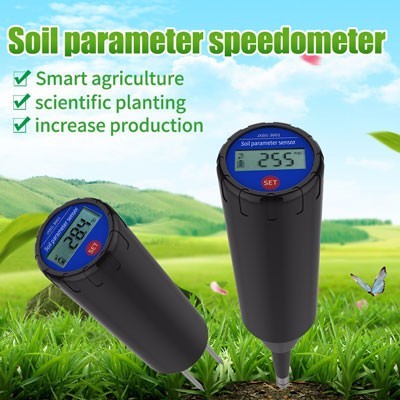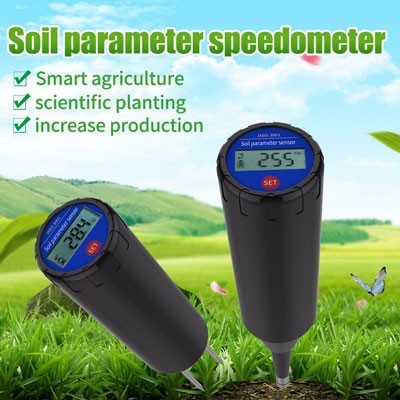Sustainability has been a major issue in today's world. With the increasing population and climate change, the food industry is facing challenges in ensuring food security for everyone. To overcome these challenges, technological advancements have been made, and soil sensors are one of them. Soil sensors are an innovative tool that enables farmers to monitor and analyze soil conditions in real-time. These sensors can help improve crop yields, reduce water usage, and subsequently enhance sustainability. This article will explore how soil sensors play a crucial role in improving sustainability from field to table.

Soil sensors are electronic devices that are inserted into the soil to gather data on soil moisture, temperature, pH levels, and nutrient content. These sensors transmit data wirelessly to a computer or a mobile device, enabling farmers to analyze and monitor soil conditions. By analyzing the data obtained from the sensors, farmers can adjust their farming practices accordingly, making informed decisions on when and how much to irrigate, fertilize, and plant. This information can help increase crop yields and reduce water usage, which is critical in regions where water is scarce.
Soil sensors provide farmers with real-time information on their crops, allowing them to detect issues before they become problems. For instance, if the sensors indicate that the soil is too dry, farmers can quickly respond by irrigating their crops to prevent wilting. Additionally, soil sensors can detect nutrient deficiencies, enabling farmers to apply the right amount of fertilizer at the right time. This method reduces waste and ensures that nutrients are not overused, thus reducing the environmental impact associated with fertilizers.
Soil sensors can also help farmers reduce their reliance on pesticides. By monitoring soil moisture, temperature, and nutrient content, farmers can create optimal growing conditions for their crops, reducing the risk of pests and diseases. This leads to a reduction in the use of pesticides, which can be harmful to the environment and human health.
Moreover, soil sensors can help farmers optimize their use of water resources. Traditional farming practices commonly involve irrigating crops based on a predetermined schedule, regardless of the actual needs of the crop. This method leads to excessive water usage, which is not sustainable. With soil sensors, farmers can monitor soil moisture levels in real-time and irrigate their crops only when necessary. By doing so, they can reduce water usage, which is essential in regions where water is scarce.

In addition to enhancing sustainability in agriculture, soil sensors also play a crucial role in reducing food waste. With real-time monitoring of soil conditions, farmers can predict crop yields accurately, enabling them to plan their harvests accordingly. Additionally, they can identify issues that may affect crop yield early, such as pest infestations or nutrient deficiencies. This method reduces the risk of crop failure and ensures that crops are harvested at optimal times. As a result, there is less food waste, which is a significant contributor to greenhouse gas emissions.
Finally, soil sensors can help improve the quality of the food produced. By monitoring nutrient content and pH levels, farmers can ensure that crops are grown in optimal conditions, resulting in high-quality produce. This leads to increased consumer confidence, as consumers become more aware of the importance of sustainable farming practices.
In conclusion, soil sensors play a crucial role in improving sustainability from field to table. They provide farmers with real-time data on soil conditions, enabling them to make informed decisions that reduce water usage, fertilizer and pesticide application, and food waste. By optimizing farming practices, these sensors can help increase crop yields and improve the quality of food produced. As technology continues to advance, it is crucial for farmers and stakeholders in the food industry to embrace soil sensors as a tool for sustainable farming practices.







